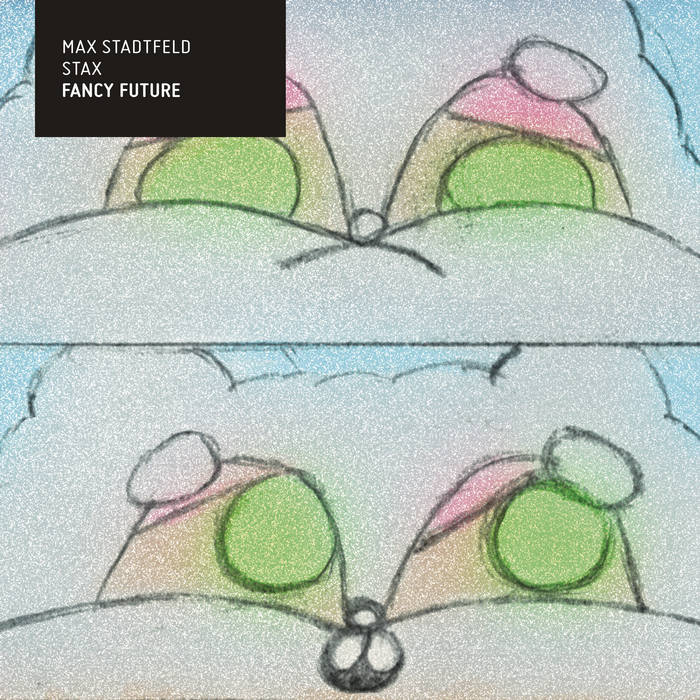Instrumental music has the advantage that it can mean anything you want it to mean. On Fancy Future, Stax bandleader Max Stadtfeld has set out to create a “utopian counter-design” in resistance to the way the world is unfolding. There’s a special accompanying comic book drawn by the artist Ebony Schneeweiß to help in this counteroffensive. So far so vague, and yet the methodology for lifting the spirits is sound.
Stadtfeld’s sense of optimism is imbued throughout the music, with the most upbeat of the tracks being ‘Icecream / Stupefaction’. It has the warm cinematic ambience of a Krysztof Komeda soundtrack without the piano, relying instead on the telepathic interplay of Bertram Burkert’s guitar and Matthew Halpin’s horns. Those horns twist and augment as the song unfurls, with a conclusion that barges its way into space all the while punching the air with euphoric and, possibly, deluded optimism. Utopian counter-design, indeed.
The title track too lives up to its titular promise, or at least the ‘fancy’ part does; it’s deluxe and dreamy, reaching languidly for notes in hard to reach places as the rhythm section offers encouragement. The ‘future’ part of Fancy Future might be overstating it. These are largely avant-garde perambulations that were the future once in the scorched earth of the post-war cool jazz scene. There are traces too of the 70s German jazz boom with artists like Klaus Doldinger and Theo Jörgensmann traceable in its DNA. That’s not to say that this music ever feels old – its progressive inclinations are too wayward for mass appeal, meaning there’s always a sense of subversion lurking in the shadows. Moreover, tracks like ‘Fix The Ship’ interface subtly with some complimentary electronica.
It’s not all utopic escapism either. Pragmatism creeps in on more ambivalently titled tracks like ‘Comfort, Then Shock’ and ‘Dooms and Doors / Dark Valley’, where foreboding scales are elaborated upon and moments that exemplify confusion and fear are brought into the fray. Stadtfeld is ultimately an optimist though, and so we conclude with ‘Non Broken, Broken Piece’, where the sax floats elegantly on languid waves of sustained major seventh chords as if to say “everything is going to be alright”. Although that’s just one interpretation.


